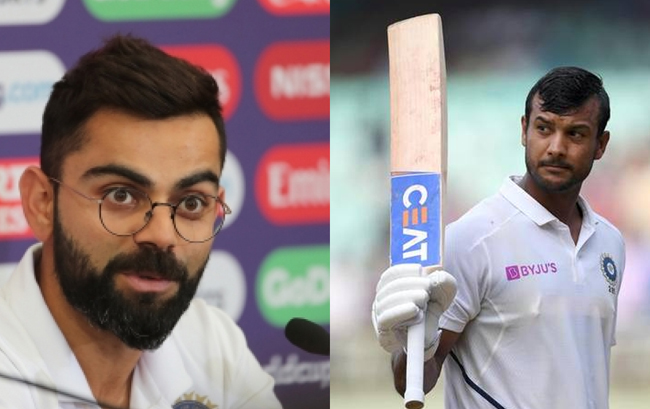Perth, Dec 18: Skipper Virat Kohli on Tuesday said the thought of having a spinner for the second Test against Australia never crossed his mind as he believed India's four-pronged pace attack would do the job.
India lost the match by 146 runs.
The visitors were outdone by a second successive eight-wicket haul by off-spinner Nathan Lyon, who was adjudged the man-of-the-match, on a pitch that favoured the seamers.
"When we looked at the pitch, we didn't think about the (Ravindra) Jadeja option. We thought four quicks would be enough," said Kohli after India were bowled out for a paltry 140 in their second innings on the fifth and final day.
"Nathan Lyon bowled really well. We never thought about the spin option to be honest."
Asked about his 123-run innings in the first innings, Kohli said: "When you don't win you don't really rank your performances so it's irrelevant because we didn't get the result we wanted.
"I am focused on the next game and I hope I can contribute on a winning note."
The India skipper praised Australia for the win, saying the hosts were relentless in their bowling and also outshone the visitors in batting.
"As a team I think we played well in patches which we can hold onto. Australia played much better than us with the bat. 330 on that pitch we felt was a bit too much. They deserved to win," he said.
"We had the belief we could do it, but they were more relentless and put us in trouble."
Talking about India's bowling performance, Kohli said: "(Our bowlers) are outstanding as a pack, to see them dominate was really good to see and something we want to build on. They are relentless even if they aren't getting wickets which is a great quality."
Asked about his controversial dismissal in the first innings, Kohli: "It was a decision made on the field, it stays there."
Australian skipper Tim Paine was a relieved man after his team won their first Test since the ball-tampering scandal in South Africa had plunged the game into crisis.
"It's probably more a relief at the moment, first Test win has taken a while," Paine said after Australia levelled the four-Test series 1-1.
"Really proud of the players and staff. Good to get a little bit of reward. It was as difficult Test, both have been tough Tests. Two really competitive sides with good fast bowling attack."
Paine said the opening partnership between Aaron Finch and Marcus Harris in the first innings made a lot of difference.
"Day one was a bit of a funny one, we crossed our fingers. Marcus and Aaron, to get us none for 100 was brilliant and probably the difference in the end," he said, referring to their 112-run opening stand.
Usman Khawaja scored a valuable 72 in the second innings after flopping in the opening Test and Paine hoped a big hundred is round the corner for the star batsman.
"Uzzie (Usman Khawaja) has been batting well for a long time. He's in a really good space. If he keeps batting the way he is right now, I am sure some big runs are going to come."
He also praised Lyon for his exploits.
"It's great to have Lyon in our team. Every team would want to have him in their team. You can throw him the ball in any condition, at any end, any time against any team and he loves bowling to the best players in the world."
It was also his Paine's first win as a captain.
"It's a huge honour to captain the Australian side. Now to do it at the MCG for the Boxing Day Test is a special feeling. We all can't wait to get to Melbourne," he said.
Lyon was ecstatic to play a role in Australia's win.
"It's amazing to play a role in a victory, haven't had one in a while. It's fair to say we've been in a drought, so good to break. Was special to wrap the tail up quickly," he said.
"My role probably changed a bit, attacking in Adelaide to a defending on here. But luckily they ran down to the wicket to create a few footholes.
"When you come up against the best players, to compete against Virat and take his wicket was pretty special. Big thanks to my brother, I'm not a very good batter so just trying to play my role."






Comments
Add new comment